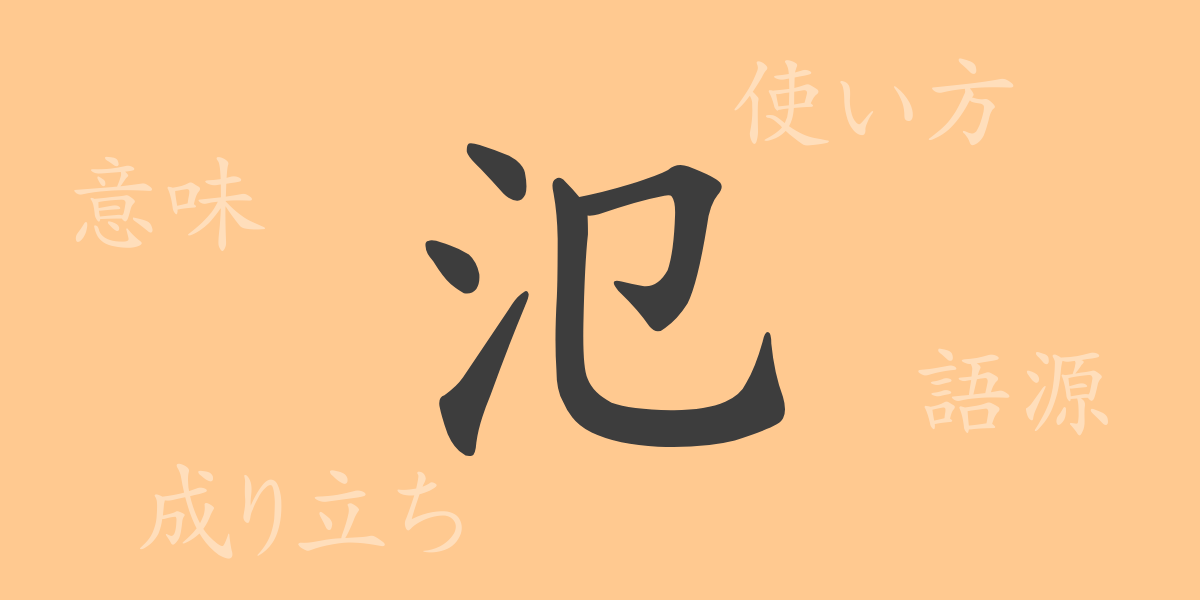Japanese kanji, each bearing deep historical and semantic significance, form an integral part of the language. The kanji “氾” (はん), though rarely encountered in everyday life, speaks volumes about the richness of the Japanese language. This article delves into the origins, modern usage, pronunciation, and writing of “氾”, exploring its unique appeal.
Origins of 氾 (はん)
The kanji “氾” (はん) originates from ancient China, depicting the overflowing of water. It consists of the “氵” (さんずい) radical, representing water, combined with “凡” (ぼん), which illustrates spreading. This composition conveys the idea of water spreading extensively, making “氾” a symbol for dispersion and inundation.
Meaning and Usage of 氾 (はん)
The primary meanings of “氾” (はん) include “to spread” and “to overflow,” often used metaphorically to describe extensive or overflowing phenomena. While it commonly depicts overflowing water in literary and poetic contexts, it can also signify extensive spread in general, though its use in modern Japanese is not frequent.
Pronunciation, Stroke Count, and Radical of 氾 (はん)
“氾” (はん) has several readings in Japanese.
- Pronunciation: On-reading is “ハン” (はん), while Kun-readings include “ひろが.る” (ひろがる) and “およ.ぶ” (およぶ).
- Stroke Count: It is composed of 4 strokes.
- Radical: It belongs to the water radical, “氵” (さんずい).
Idioms, Phrases, and Proverbs Using 氾 (はん) and Their Meanings
Idioms and phrases containing “氾” (はん) are often found in classical literature and historical contexts. Examples include:
- 氾濫 (はんらん): Literally “flooding,” it denotes water overflowing beyond river banks and spreading widely. Metaphorically, it can also refer to any phenomenon exceeding limits and spreading extensively.
- 氾勝 (はんしょう): Meaning “to win extensively across a wide area,” though this idiom is seldom used today.
Summary on 氾 (はん)
While the kanji “氾” (はん) may not be frequently used, it holds a unique shape and meaning that represent the spreading of water. Understanding this character deepens one’s grasp of the Japanese language. For learners of Japanese and enthusiasts of kanji, “氾” offers a glimpse into the profound layers of language through its history and meanings. Phrases like “氾濫” (はんらん) show its application in everyday language, revealing how a kanji with few strokes can convey expansive narratives. Explore the world of “氾” and enjoy its rich storytelling.

























